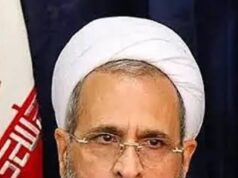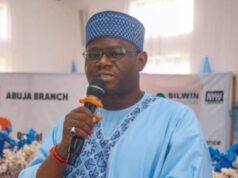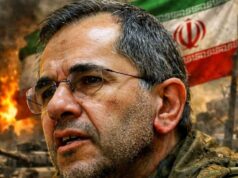
Following the coup that toppled President Mohamed Bazoum of Niger Republic,
Leaders of the Economic of West African Countries (ECOWAS) and the region’s Defence Chiefs in separate were said to have, in meetings, made far-reaching decisions aimed at resolving the political stalemate in the country.
Reports said that contrary to report of a looming military intervention in Niger, there is no plan for any immediate deployment of troops for that action for now.
A top intelligence source hinted that the resolutions of the two bodies of ECOWAS emphasised dialogue, economic and security sanctions as necessary steps to be explored at resolving the crisis before any other action could be contemplated.
“President Bola Tinubu doesn’t express his personal opinion but the resolutions of ECOWAS Leaders which he chaired as the current rotational Chairman.
“The resolutions include further engagements to resolve the political logjam,” the intelligence who claimed anonymity added.
While President Tinubu Chairs ECOWAS, Nigeria’s Chief of Defence Staff (CDS), General Chris Musa, is the chairman of the region’s Defence Chiefs.
In a letter sent to the Senate and read by the Senate President, Godswill Akpabio, at the plenary, President Tinubu explained that the resolutions of the ECOWAS were considered after a meeting with African leaders.
In attendance at the ECOWAS Extraordinary Session held in Abuja over Niger crisis were Presidents Umaro Sissoco Embalo of Guinea-Bissau, Alassane Ouattara of Cote D’Ivoire, Faure Gnassingbe of Togo, Macky Sall of Senegal, Patrice Talon of Benin, and Nana Akufo-Addo of Ghana, while
Cape Verde and Liberia were represented by their Foreign Affairs Ministers, Luís Tavares and Dee-Maxwell Kemayah Sr, respectively
The letter read: “Following the unfortunate political situation in Niger Republic culminating in the overthrow of its President, ECOWAS under my leadership condemned the coup in its entirety and resolved to seek the return of the democratically elected government in a bid to restore peace, ECOWAS convened a meeting and came out with a communique.
“Closure and monitoring of all land borders with the Niger Republic and reactivating of the border drilling exercise.
“Cutting off Electricity supply to the Niger Republic
“Mobilising international support for the implementation of the provisions of the ECOWAS communique.
“Preventing the operation of commercial and special flights into and from Niger Republic.
“Blockade of goods in transit to Niger especially from Lagos and eastern seaports.
“Embarking on sensitisation of Nigerians and Nigerians on the imperative of these actions, particularly via social media.
“Military build-up and deployment of personnel for military intervention to enforce compliance of the military junta in Niger should they remain recalcitrant.”
Similarly, ECOWAS Defence Chiefs resolved to place dialogue at the forefront of the regional body’s approach to resolving the crisis in the Niger Republic.
While reading the communique from their meeting, General Chris Musa said the region’s Defence Chiefs acknowledged the need for a comprehensive approach that encompasses political, security, and diplomatic dimensions.
It was noted that at least, military chiefs from 12 countries in ECOWAS attended the meeting at Defence Headquarters in Abuja. They were from Nigeria, Benin, Ghana, Togo, Sierra Leone, Liberia, The Gambia, Côte D’Ivoire, Cape Verde, Senegal, and Guinea Bissau.
Musa said that the committee recognized the gravity of the situation and the urgent need for a well-coordinated response.
“We have acknowledged the need for a comprehensive approach that encompasses political, security, and diplomatic dimensions. It is imperative that we translate our deliberations into concrete actions that can effectively address the crisis and prevent a recurrence in the future.
“Firstly, we must emphasize the importance of upholding democratic principles and the rule of law. The coup in the Niger Republic represents a blatant disregard for these fundamental principles that underpin our regional integration and stability. We must unequivocally condemn such actions and demonstrate our unwavering commitment to democracy.
“Secondly, we must strengthen our regional security architecture and enhance our collective response to security challenges. The coup in the Niger Republic has highlighted the fragility of our region and the need for a robust and proactive security framework. We must enhance intelligence sharing, joint training exercises, and capacity-building initiatives among our defense and security forces to effectively combat threats to our collective security and enhance interoperability.
“Thirdly, we must intensify our diplomatic efforts to engage with all relevant stakeholders. Dialogue and negotiation should be at the forefront of our approach to resolving the crisis in the Republic of Niger. We must engage with the transitional authorities, civil society organisations, and other key actors to foster an inclusive and peaceful transition process.”
Musa urged other Defence Chiefs to ensure that their expertise and resources are channelled to tackle insecurity in the region.
“We must leverage our collective expertise and resources to address emerging security challenges promptly.
“Let us remember that the success of this meeting will not be measured by the words spoken here today, but by the actions we take tomorrow and, in the days to come. Let us seize this opportunity to make a lasting impact and ensure that the Niger Republic and the entire ECOWAS region can progress on the path of democracy, peace, and stability.
“We must allocate the necessary resources, engage relevant stakeholders, and monitor progress to ensure that our decisions have a tangible impact on the ground.”
Also speaking, the Commissioner for Political Affairs, Peace and Security, ECOWAS, Ambassador Abdel-Fatau Musah, said that the authority of the Heads of State of ECOWAS was committed to eradicating all forms of unconstitutional takeover of power in the sub-region.
Musah said that the threat of military takeover in West Africa had become pronounced in recent times, saying that efforts must be made to address the situation if the region must not become the laughing stock of Africa and the world.
He said that the meeting of the defence chiefs was guided by the Protocol relating to the mechanism for conflict prevention, management, resolution, peacekeeping, and security, which was adopted in 1999 and signed up by all Member States in 2001.
“Respected chiefs of defense staff of our region, this is a clarion call to you. This is a test of the will of our militaries to demonstrate that we are having a democratically minded military whose responsibility is the protection of the state.
“So diplomacy is being given a chance to succeed and like we said, the military option is the very last on the table. And if we can avoid that, a peaceful resolution is our preferred option but we have to prepare for all eventualities,” he added.
Source: PRNigeria






